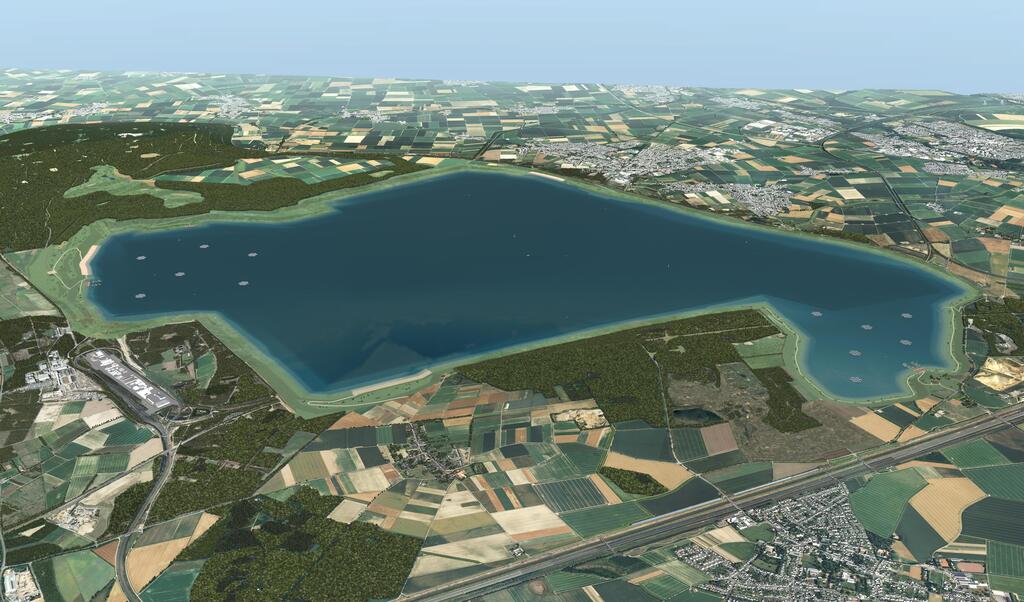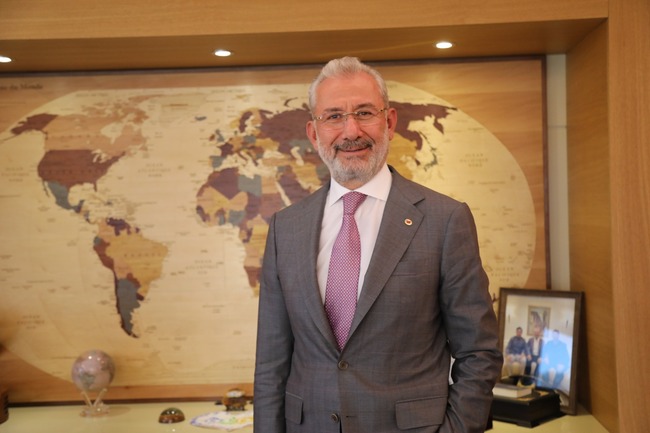Tosçelik Spiral Boru, an elite subsidiary of Tosyalı, Türkiye’s dominant steel magnate and Europe’s largest pipe producer, has been awarded the “Rhine Water Pipeline” (RWTL) contract.
This environmental project is critical for Germany, aimed at transferring water from the Rhine River to fill deserted strip mines. Orchestrated by RWE, one of Germany’s principal energy providers, the project requires Tosçelik Spiral Boru to provide 130,000 tonnes and 105,600 metres of 2235 mm diameter pipes. The contract was signed during a ceremony at RWE’s Paffendorf Castle, near Cologne.
Fuat Tosyalı, Chairman of Tosyalı, noted, “As Europe’s biggest green steel pipe producer, this project has a special meaning for us since the idea is unique. As Tosyalı, we prioritise sustainability investments in every touch point of our production and deliberately invest in green transformation technologies. So when a project with the highest environmental sensitivity is announced, like Rhine Water Pipeline, we are even more motivated to participate with our low carbon footprint steel pipes.”
Dr Lars Kulik, RWE Power’s CTO, said, “For our project, we need large, high-quality pipes that will carry water from the River Rhine to the mine lakes for decades. Another focus of our tender was the manufacturer’s attitude towards the environment. We are delighted to have Tosyalı with their vertically integrated production from raw material to end products, ensuring sustainability and the highest technology used in production at our side. With their support, we will sustainably transform the opencast mines into attractive lakes – for the benefit of generations to come.”
Tosçelik Spiral Boru, one of the successful companies of Tosyalı, Türkiye’s global steel producer and one of the largest spiral pipe producers in Europe, continues to grow by participating in new projects with the agreements it has made while continuing to contribute to the green transformation initiated within the scope of the EU Green Deal in many European countries.

Green Transformation Bridge from Türkiye to Germany
By 2030, Germany’s RWE power generation company will stop operating coal-fired power plants and opencast mines. With this project, the company will recultivate the disused opencast mines in Garzweiler and Hambach and turn them into lakes. For this purpose, the company will pump water from the Rhine River near Düsseldorf and Cologne along a 45 km-long route through underground pressurized pipes. This will not only reintroduce former opencast mines back into nature but also provide clean water to protected wetlands and stabilize the regional groundwater table.
Tosçelik Spiral Pipes Made of Green Steel Will Be Used in the Project
Tosyalı, which RWE has contracted as a supplier in this investment made within the framework of green transformation, realizes the steel production with the lowest carbon footprint in the sector. Tosyalı, which makes sustainability-oriented investments in its facilities in Türkiye and Algeria, is one of the pioneers of the sector in green steel production in the world with its investments in clean energy sources such as solar and hydrogen. In Türkiye, the company has reached 235 MW installed capacity with the SPP project realized with the investment made in all its facilities at the same time, making it the company with the largest rooftop SPP in the world. With this project, it is also one of the world’s greenest steel producers by preventing approximately 171 million kg of carbon emissions. Tosyalı also invests in hydrogen, the energy of the future, with new-generation technologies. The second DRI production facility in Algeria, which was realized with MIDREX technology, will be able to operate with 100% hydrogen. With these sustainability-oriented investments, Tosyalı produces the world’s greenest and most environmentally friendly steel and has the lowest carbon footprint in the world.
RWE’s significant investment in green transformation will utilize Tosyalı’s sustainability-focused, environmentally friendly steel pipes. The project, which involves the construction of a three-strand steel pipeline on an approximately 45 km route, is scheduled to start at the end of 2024 and be completed by the end of 2029.


